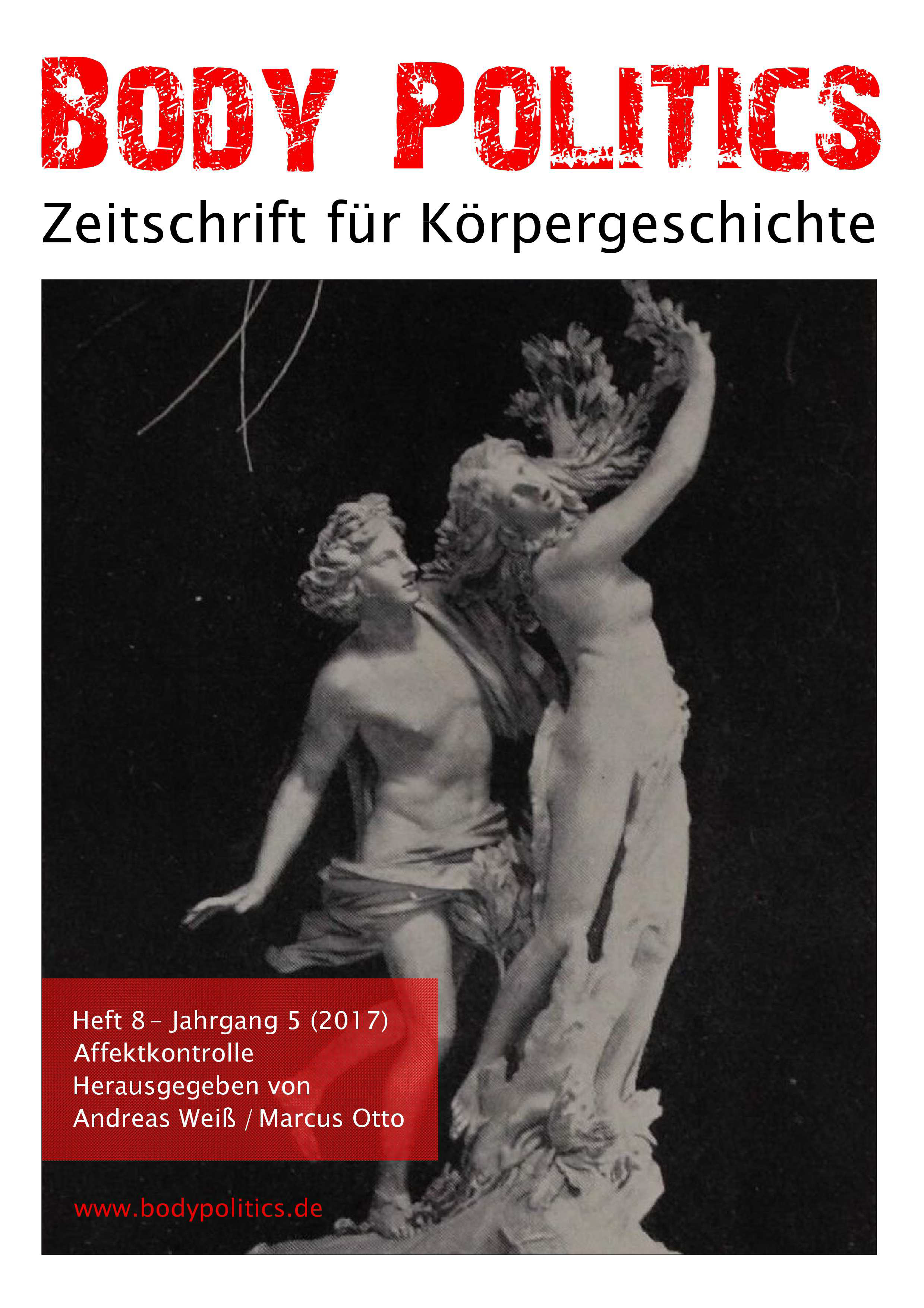„Ich hab halt gesponnen“
Affektordnung, Elektroschocktherapie und Subjektivierung in der Nachkriegszeit
DOI:
https://doi.org/10.12685/bp.v5i8.1490Abstract
English abstract: In this paper, I ask to what extent affective states of mourning or depression were identified as problems and subjected to public discourse and psychiatric treatment in post-war Germany. Casefiles from the Asylum of Eglfing-Haar provide the source material for my analysis of the dynamic tensions between individual affect regulation and the societal affective regime. For this study, affects are conceptualized as relational, embodied states that are realized in situational practices. The study shows that for the therapy and its evaluation the ability to work was considered a central social quality to determine affective well-being. After 1945 the ability to socially adapt to an environment of fellow patients and medical personnel became an important factor too. Patients and psychiatrists, often in accord with each other, somaticized depressive, affective states of despair or the inability to meet the demands of their family or of the society. To them, Electroshocktherapy provided a therapeutic practise which enabled contentment and adaptability. To patients, psychiatrists and public intellectuals alike the notion of shock offered also a productive metaphor to describe their contemporary reality.
Downloads
Veröffentlicht
Ausgabe
Rubrik
Lizenz

Dieses Werk steht unter einer Creative Commons Namensnennung - Nicht-kommerziell - Keine Bearbeitung 3.0 International -Lizenz.


